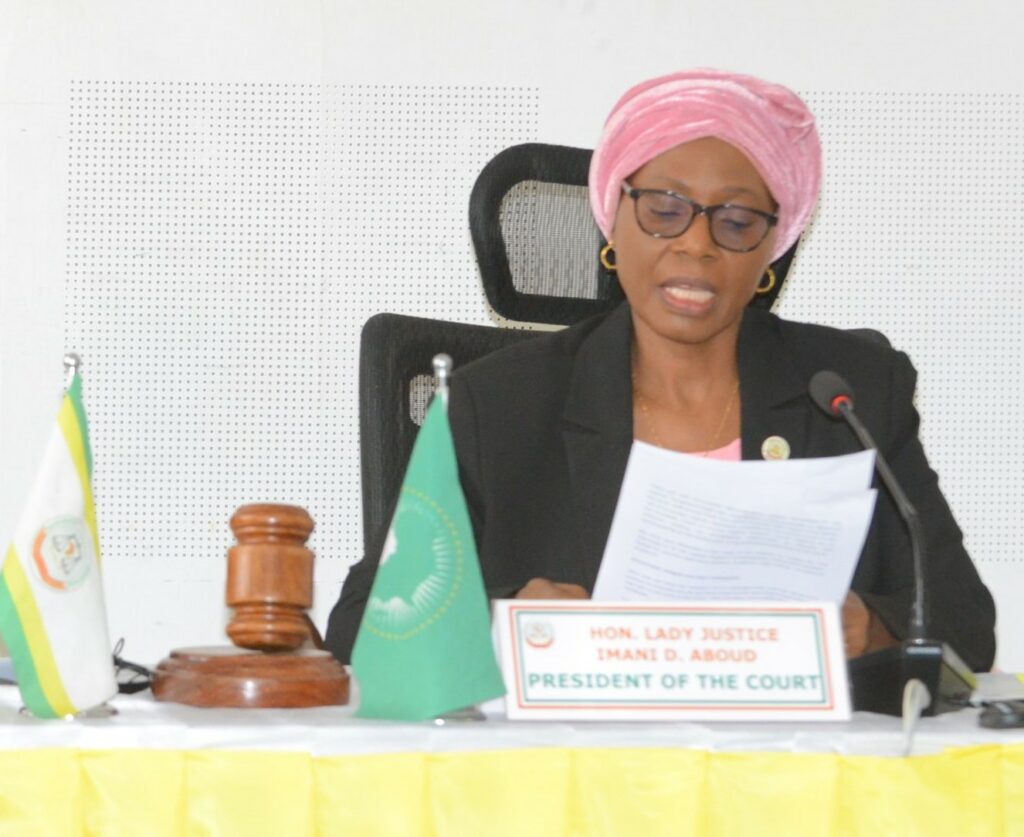African Court clarifies the manner to treat refugees

Lady Justice Imani Daud Aboud, President of the African Court on Human and Peoples’ Rights, says the continental court has set out rules on the way States should treat refugees, asylum seekers, and migrants.
She explained that the African Charter in Article 12 contained some fundamental protections for refugees and asylum seekers.
“Overall, Article 12 provides for the right to freedom of movement and residence to anyone lawfully within a country.
“It also provides for everyone’s right to leave his country and to return to the same. As for those under persecution, Article 12(3) guarantees the right to seek asylum in other countries”.
Lady Justice Aboud stated in remarks at the International Association of Refugee and Migration Judges (IARMJ): African Chapter Regional Conference in Arusha, Tanzania.
The conference, which focused on access to asylum, territory, and justice – context and challenges in Africa, was attended by legal luminaries to discuss issues of refugees, asylum seekers, and migrants in Africa.
Lady Justice Aboud said under Articles 12(4) and 12(5), non-nationals legally admitted to a country could not be expelled except through a decision supported by law, adding the mass expulsion of non-nationals was prohibited.
“I should also point out that one of the challenges that the African Court has had to deal with pertains to the fact that the African Charter on Human and Peoples’ Rights does not contain an explicit provision on the right to nationality,” she said.
“This, however, has been dealt with by the African Continental Court,” she said and explained that the African Court decisions confirmed that while the grant of nationality is, in line with general international law, a prerogative of the state, any deprivation of nationality must be carried out through mechanisms that were supported by law to avoid creating situations of statelessness.
In relation to the absence of a provision in the Charter dealing with the right to a nationality, the African Court has invoked the Universal Declaration of Human Rights and interpreted article 5 of the Charter to conclude that the right to dignity includes, as a critical component, the right to a nationality.
Lady Justice Aboud noted that it was the decision of the African Court that any arbitrary denial of one’s nationality was incompatible with the right to dignity.
The African Court President noted that drawing on developments in international law, reiterated the fact that there are very few circumstances that can justify, under international law, the ban on entry into one’s own country.
“Let me remind all distinguished delegates that the jurisdiction of the African Court extends to all other human rights instrument ratified by the State concerned and is not limited to instruments adopted by the African Union,” she said.
The African Court President also extended an invitation to the International Association of Refugee and Migration Judges to be part of the movement for reinvigorating a common faith in the oneness of humanity.
“I believe acceptance of the oneness of humanity can form a solid basis for opening borders to refugees and asylum seekers while at the same time not chasing them to places where their lives could be in danger.
“Above all else, the association should be pivotal in developing evidence-based interventions for dealing with refugees and asylum seekers. I am mindful that in this social media era, it is very easy for misogynistic views and other prejudices to quickly gain currency.
“It behoves people like you, distinguished delegates, to assist in maintaining societal sobriety.
“One important counter-narrative, that I personally would support, is that societies across our continent should be taught to view refugees and asylum seekers not so much as a burden but an opportunity and to work towards harnessing their potential contribution to the societies in which they live,” she said.
Lady Justice Aboud noted that it should progressively be easy to allow refugees and asylum seekers access to territory and all the concomitant protections that the law afforded them.
Source: GNA
